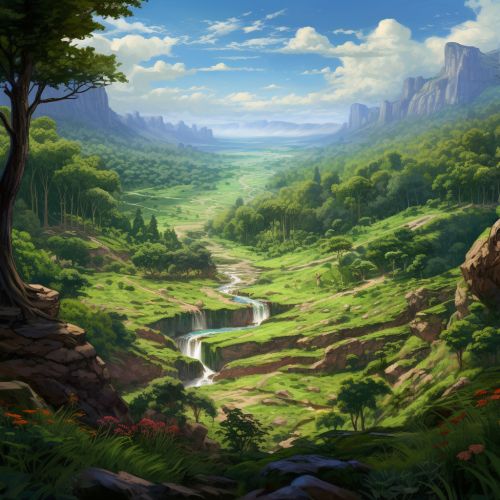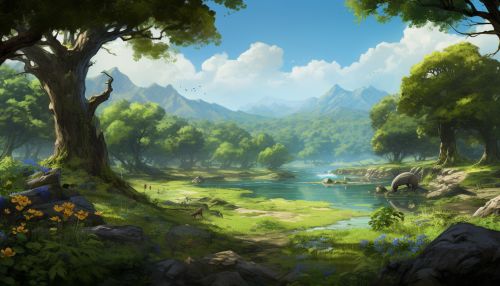Miocene
Introduction
The Miocene epoch is a significant period in the Earth's history, spanning from approximately 23 million to 5.3 million years ago. It is the first epoch of the Neogene period within the Cenozoic era. The Miocene was a time of global change in climate and geography, which had profound impacts on the evolution of life on Earth.
Climate
The climate of the Miocene was marked by a trend towards cooler conditions, a continuation of the trend that began in the preceding Oligocene epoch. The Earth's climate during this time was warmer than today, but cooler than earlier epochs. The Miocene saw the expansion of grasslands, which led to the evolution of large grazing mammals and the first appearance of many modern types of mammals and birds.
Geography
The geography of the Miocene was characterized by significant tectonic activity, which led to the formation of many of the Earth's current mountain ranges and ocean basins. The Himalayas, Andes, and Rocky Mountains all experienced significant uplift during this time. The formation of the Isthmus of Panama during the late Miocene had a major impact on global ocean circulation patterns, leading to the cooling of the Earth's climate.
Flora and Fauna
The Miocene epoch was a time of significant evolution and diversification of life on Earth. The expansion of grasslands led to the evolution of large grazing mammals, including horses, camels, and deer. The first apes appeared during the Miocene, and the epoch also saw the first appearance of many modern types of birds. The oceans of the Miocene were home to a diverse array of marine life, including sharks, whales, and seals.
Impact on Human Evolution
The Miocene epoch had a significant impact on human evolution. The first apes appeared during this time, and the expansion of grasslands led to the evolution of large grazing mammals, which would later become important sources of food for early humans. The cooling of the Earth's climate during the Miocene may have also played a role in driving the evolution of early hominids.


